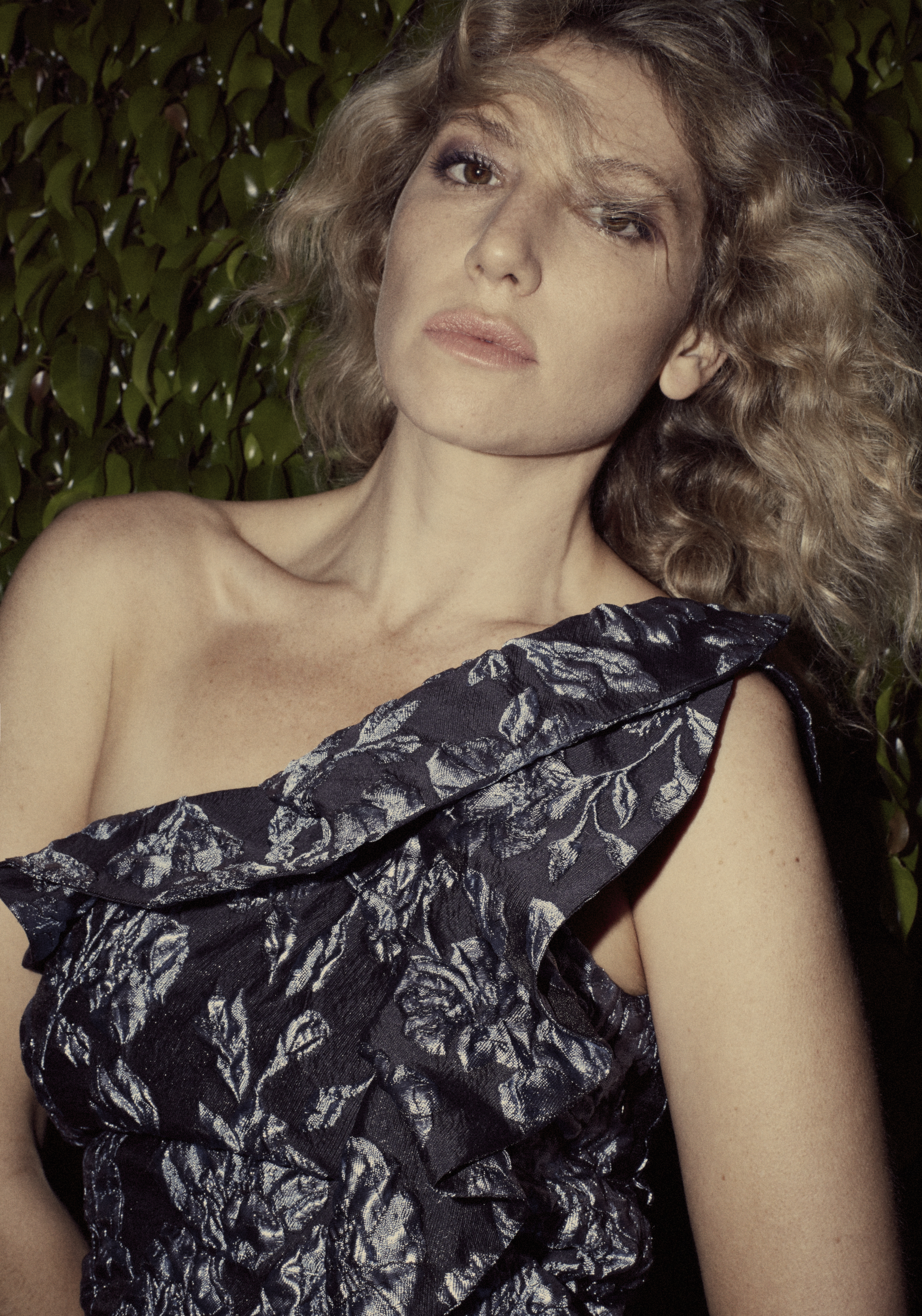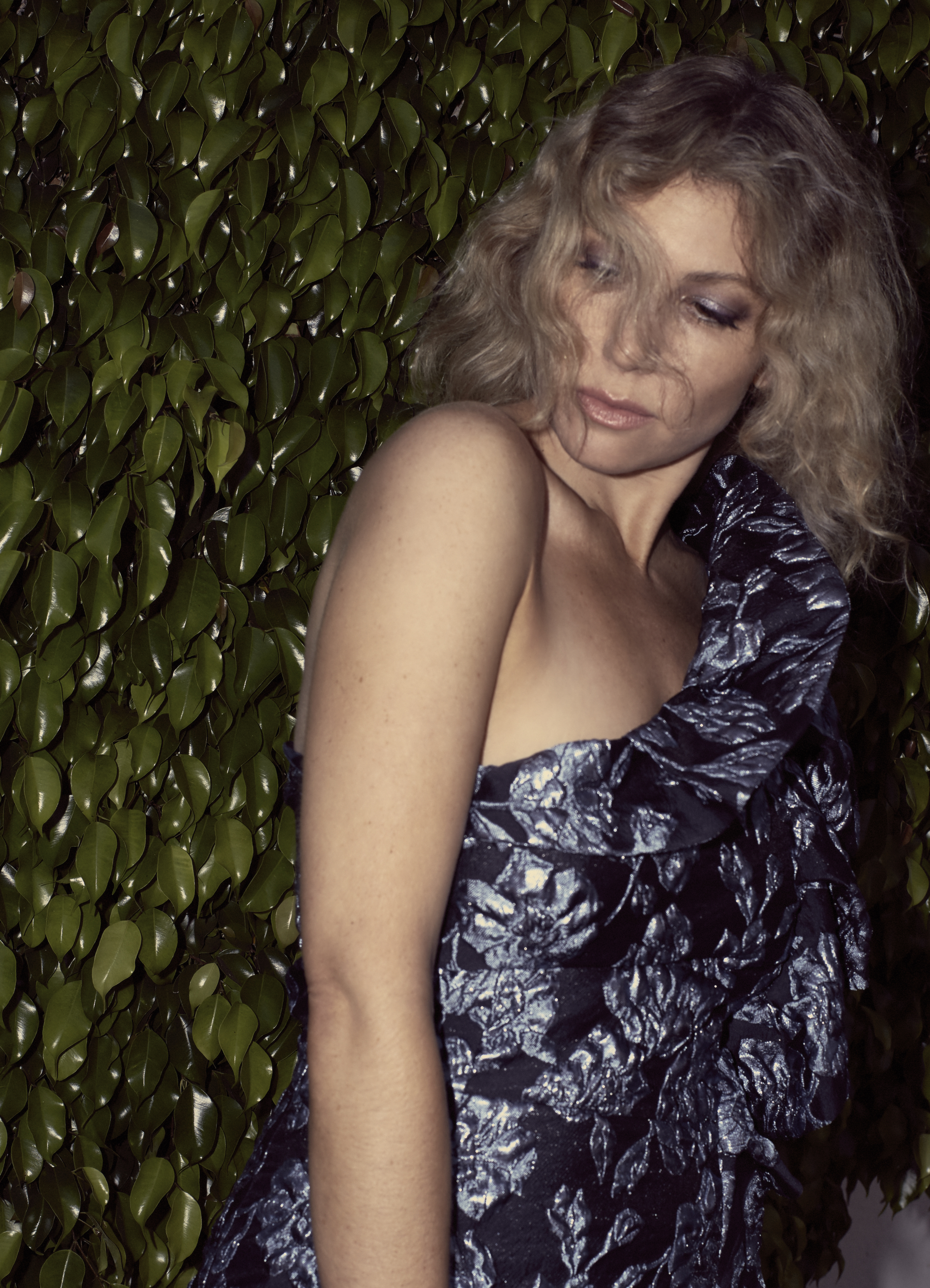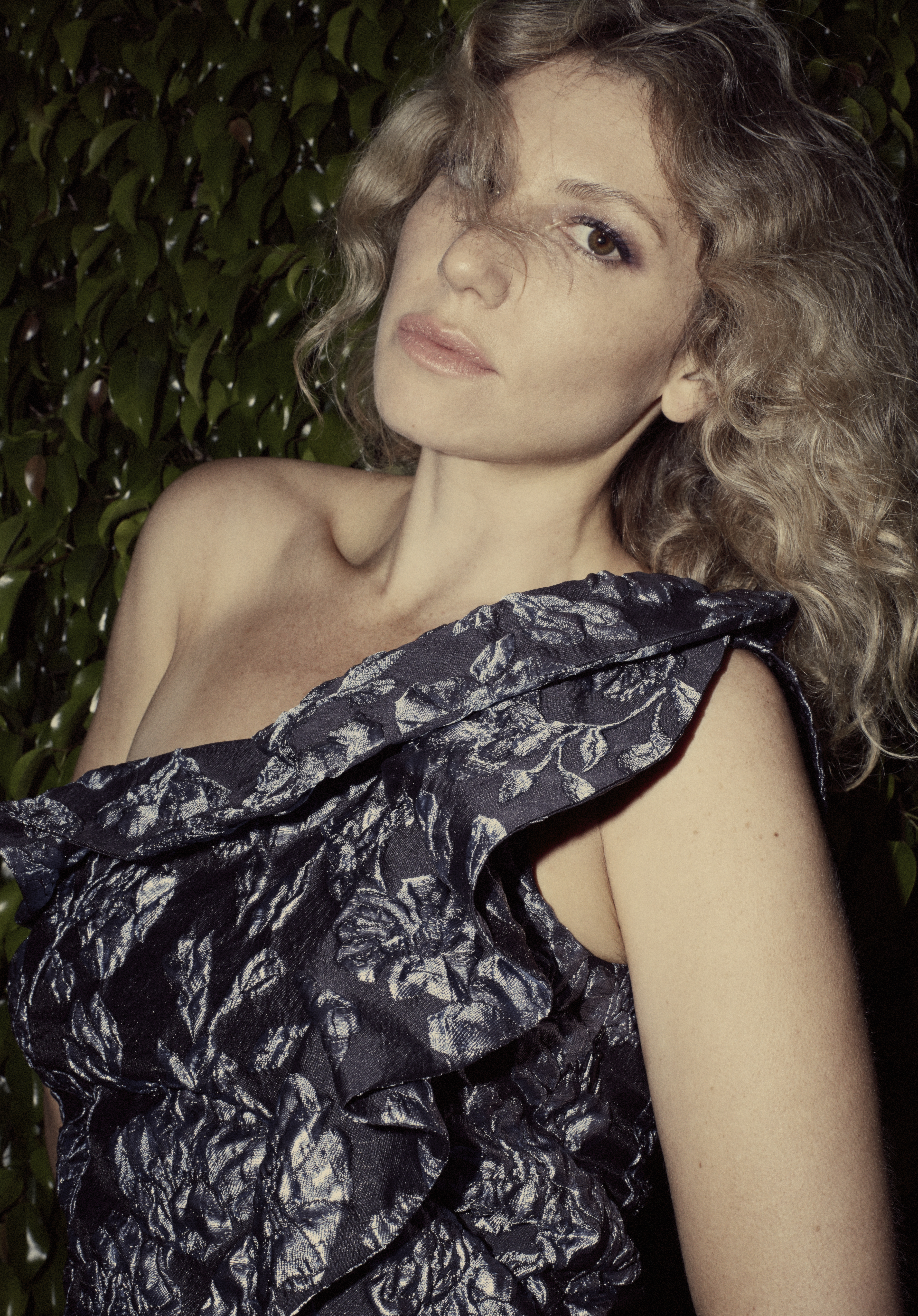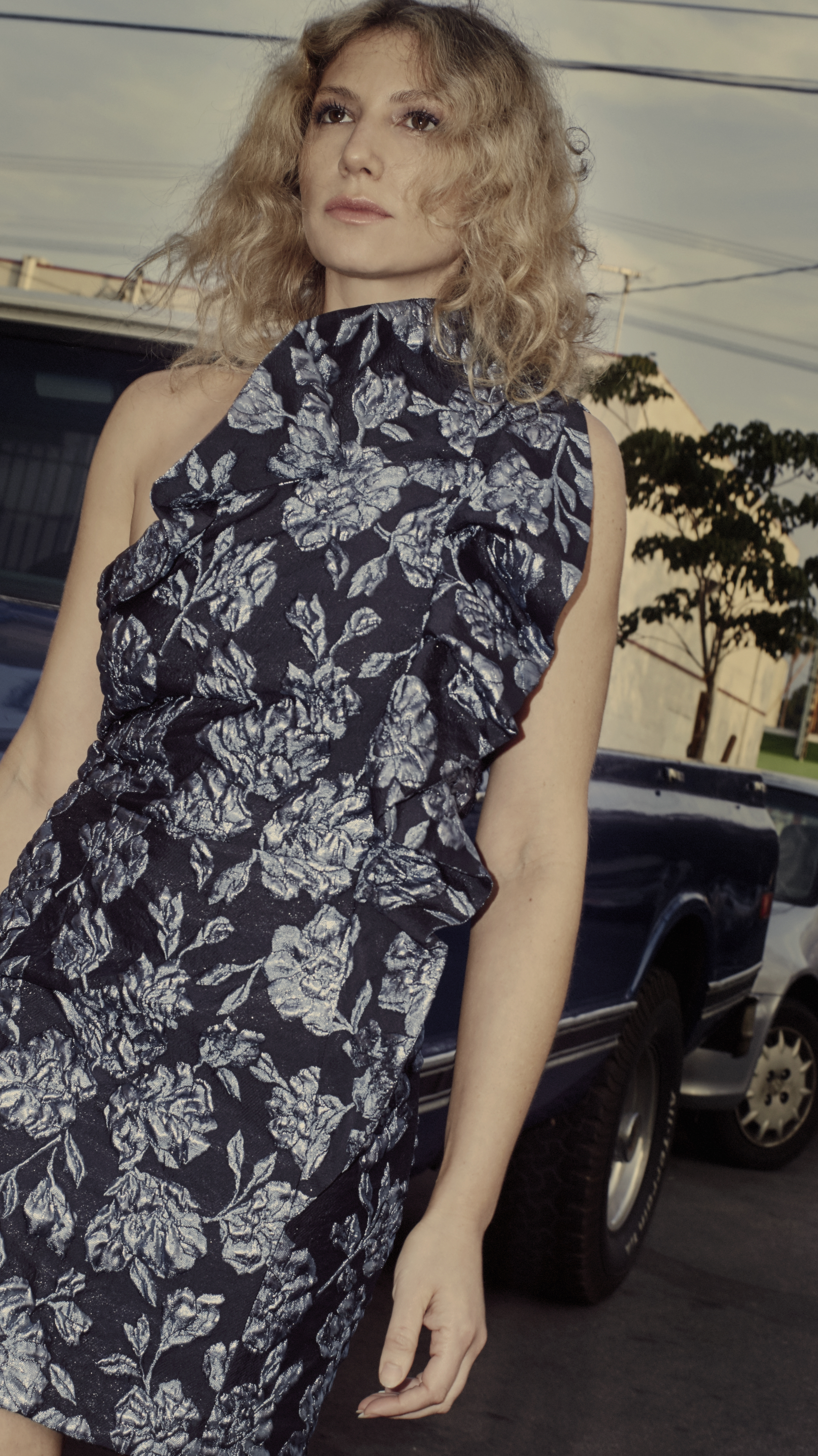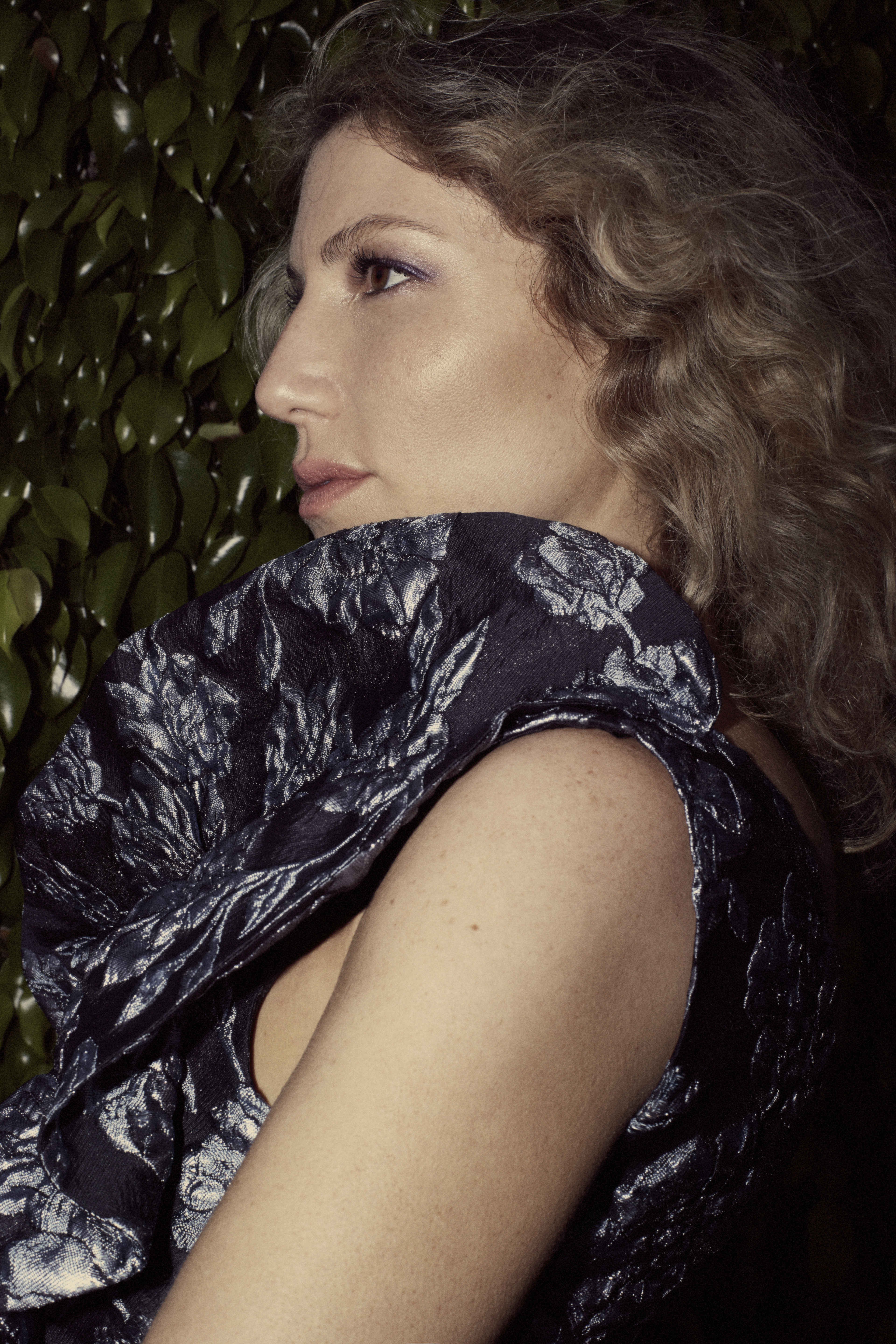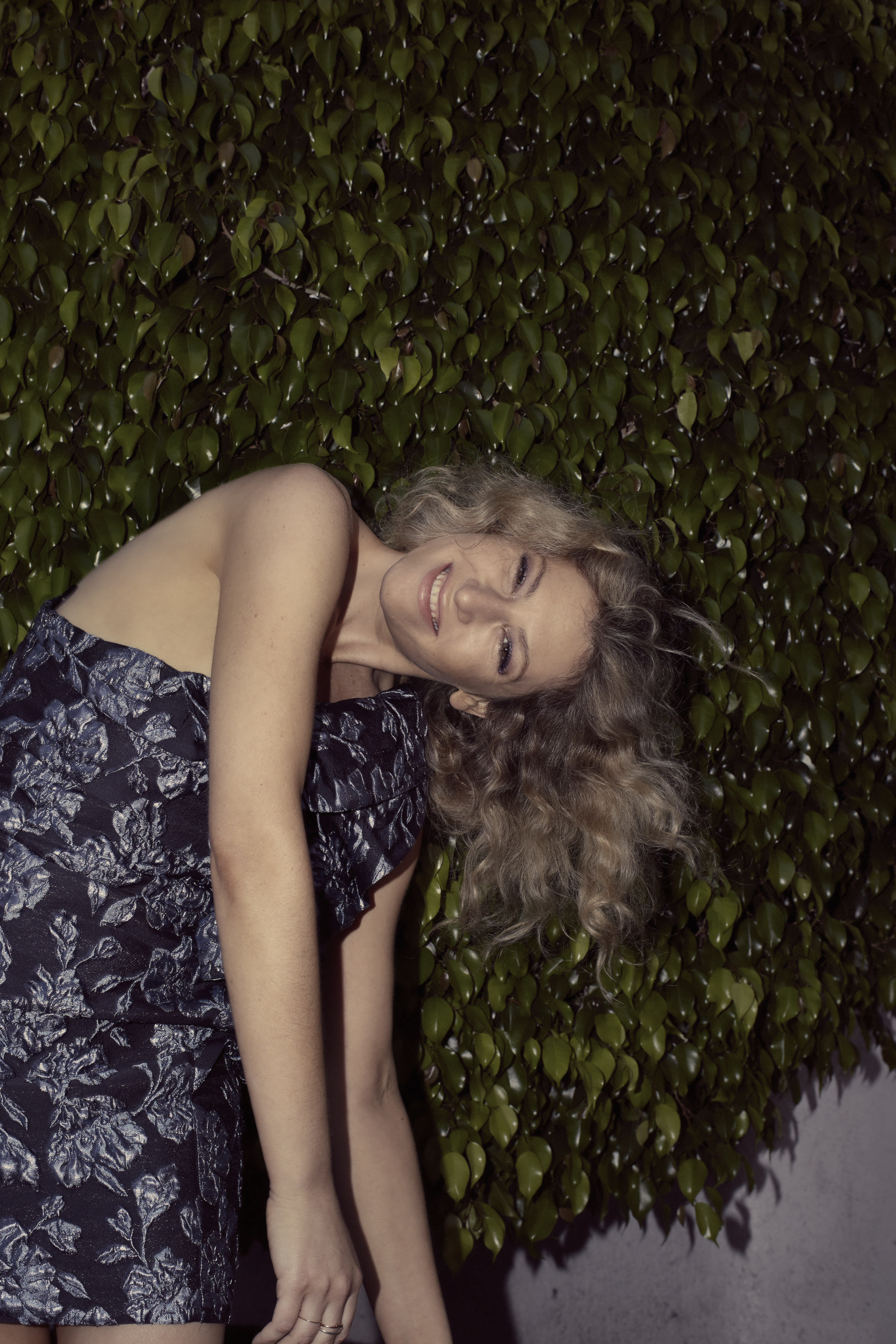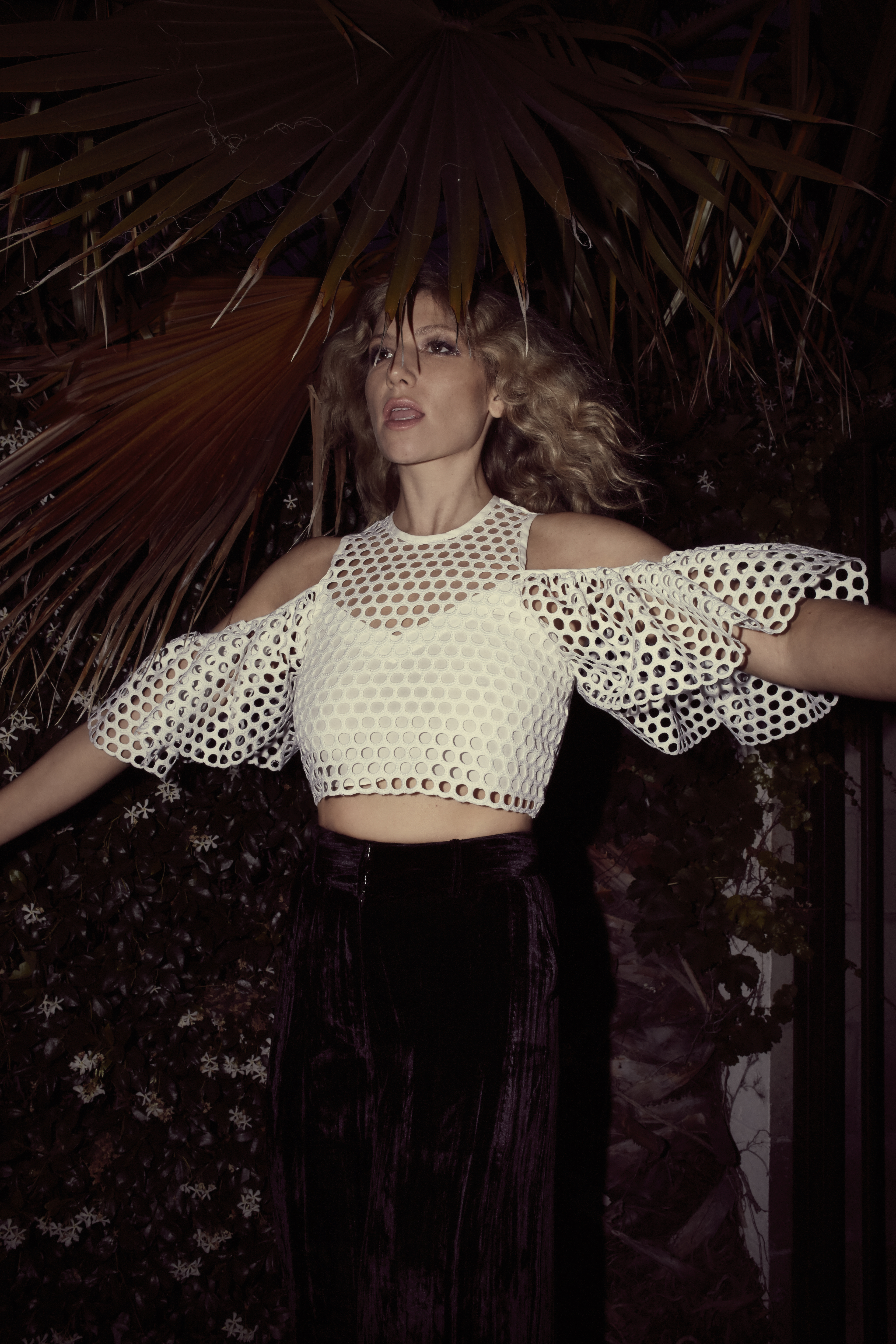
Top and Pants: Shop Curve | Heels: Jerome Rousseau
Ari Graynor
Photographer:
Eric Hobbs
Creative Director:
Deborah Ferguson
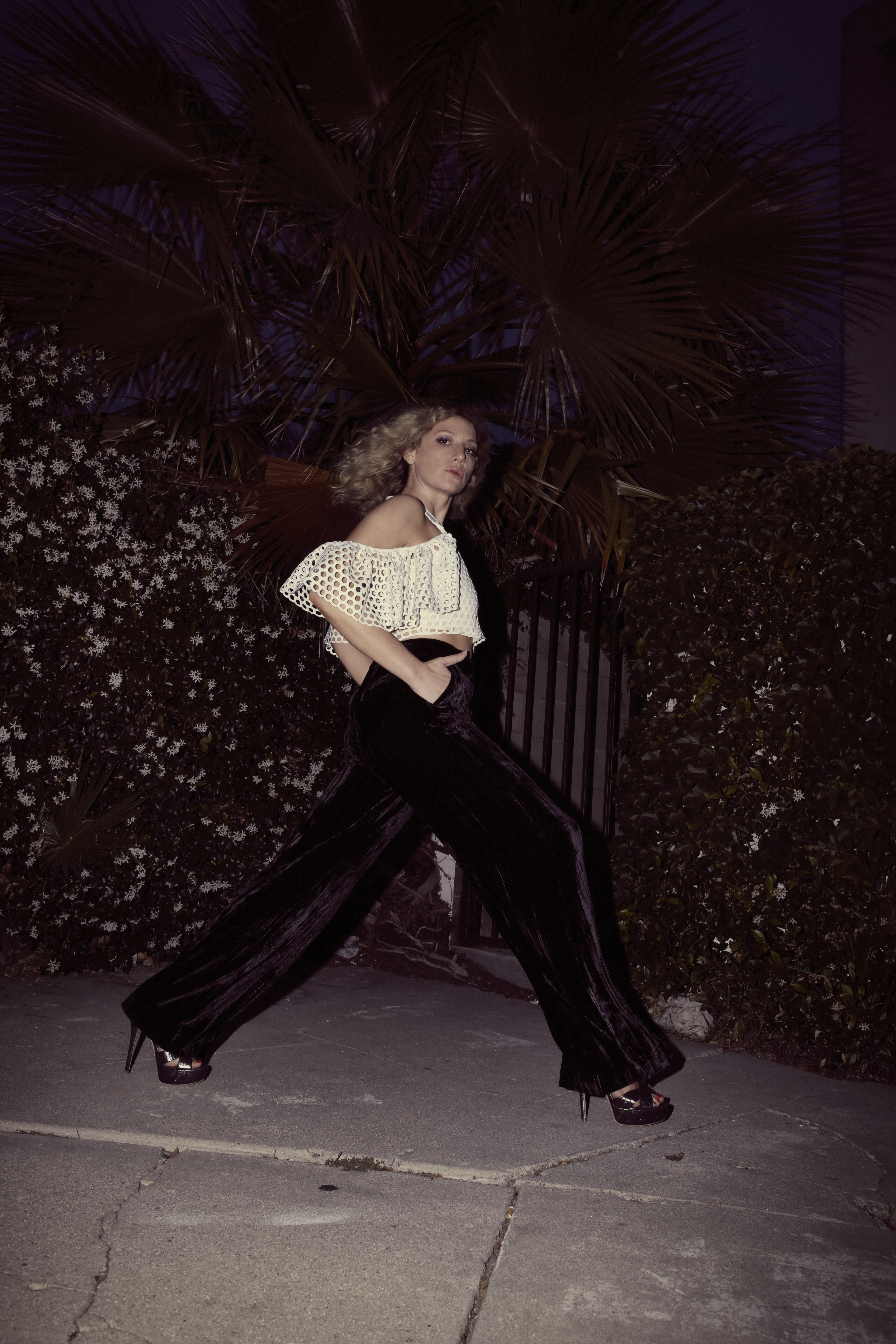
Interview By Jaimie Kourt
You are starring in the new Showtime Series, I’M DYING UP HERE about the 1970’s comedy scene in Los Angeles. Do you live in Los Angeles? Were you a fan of the world before this show was on your radar?
I’ve lived in Los Angeles off and on for years but had JUST officially moved back to NY when “I’m Dying Up Here” came around. I’ve always had a sense of nostalgia for the 70s even though I wasn’t there. Something about its gritty romanticism and urgency in artistic expression across the board really gets me. Although I admit I knew very little about the comedy scene as a whole.
You often play comedic roles, but you are not a comic per se. Why do you think you were cast as “Cassie Feder”? How did this role come to you?
I’ve never comfortably fit in the boxes people have tried to put me in. I’ve always felt like a lot of things at once, including my proclivity towards drama AND comedy. I sort of fell into playing comedic characters, which I loved, but always felt a little like “yeah…but this is only one part of who I am and what I can do.” There were some more dramatic roles along the way but those were maybe less known by people. This show, though, feels a lot like I how felt — it doesn’t easily fit into a box. It’s a drama about comedy. It embraces the light and the dark and it showed up like a total gift from the universe. One day, out of the blue, I got an email from Jonathan Levine (the director of the pilot) telling me all about it and why he and the producers thought I would fit. It had to do with that balance – the humor and the depth. I couldn’t believe it. I couldn’t believe that something existed that got to whole all of it.
I’m sure there must have been a great deal of study to ready you for this work. What did you do to prepare? Did you get a chance to perform for real audiences? Do they use real audiences for the show, or are the acts filmed as usual scenes in television production?
There was a lot of prep…
I read a bunch of books (including the nonfiction book “I’m Dying Up Here,” on which our show is loosely based) and many more spanning the history of comedy to feminist literature like “The Feminine Mystique.”
I watched a ton of standup, trying to focus on stuff from the early ’70s because the rhythm and material was so different than it is now, but I also watched a lot of what came before and what’s come since. I went to see a lot of standup, mainly at The Comedy Store in LA and, yes, there was one terrifying weekend where Michael Angarano and I went and did some open mics.
And then there was all the regular acting prep too.
Would you be interested in trying your hand as a “real life” stand-up?
I think playing one on TV is satisfying enough for right now but never say never.
Do you find Cassie’s material akin to your own humor?
Most comedy is infamously not timeless. There are cycles and styles that change with each generation. So there is one part of Cassie’s material (and all the material in the show to a certain extent) which is meant to feel of another time. What was new and shocking then isn’t what’s new and surprising now…and comedy is like music, built with beats and space and notes. The rhythms of comedy and standup are different from 40 years ago. That said, though, there is a lot that she’s doing – making the real life, honest, tough stuff funny – that I totally appreciate and feel very close to. And her delivery is inherently my delivery. A couple of the jokes along the way are ones I came up with so, you know, those are pretty “akin to my own humor.” Also whenever the show has scenes with all the comedians hanging out, making fun of each other, that’s pretty much exactly the way it is between us when the cameras aren’t rolling.
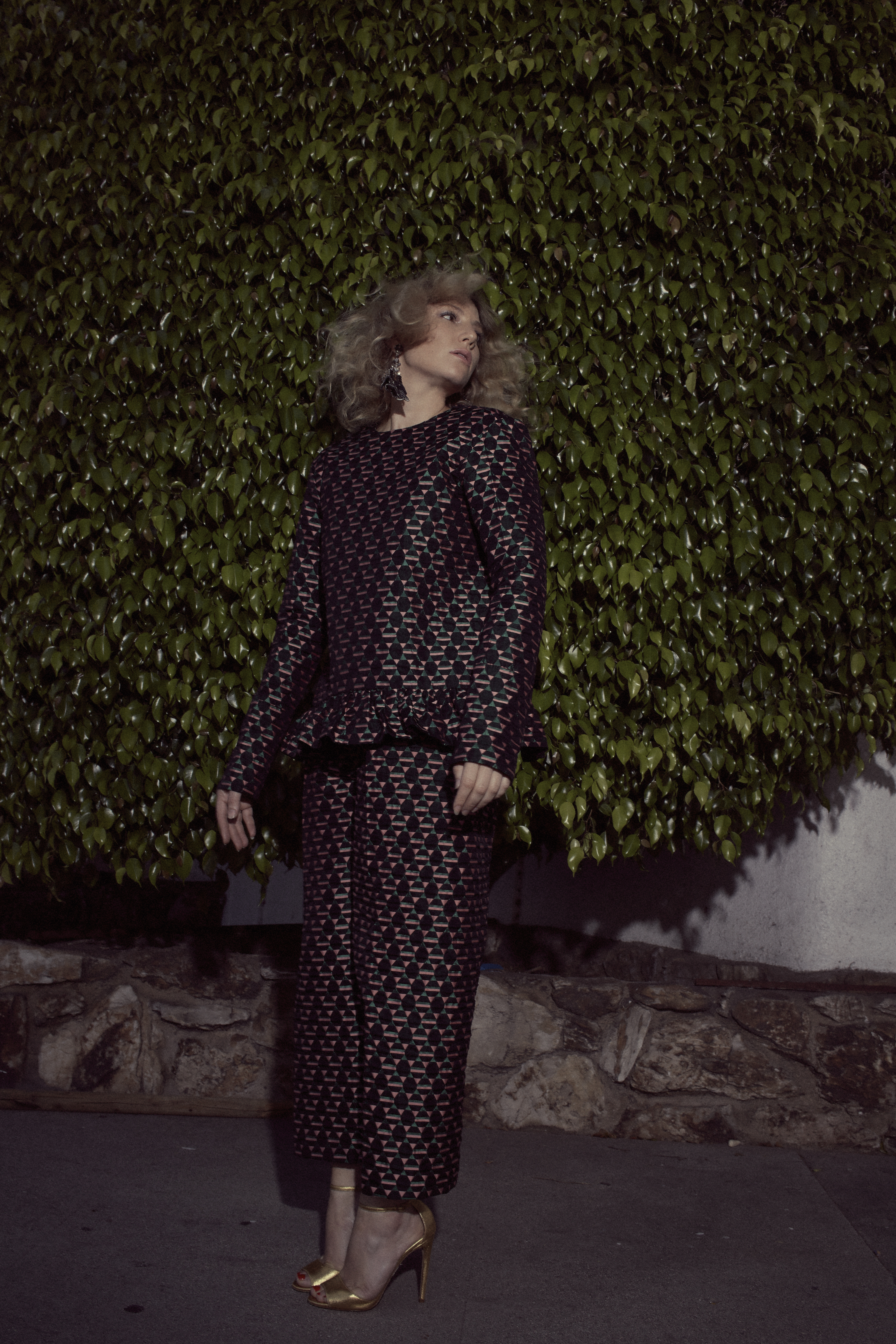
I have to ask. Are you funny? Who are your favorite funny people (both famous and accomplished, and those you know personally)? What makes something funny to you?
Do I think I’m funny? I mean…I CAN be funny. But sometimes it’s a lot of work and I’m just too lazy. I don’t know if I can articulate what I find funny. That’s the great thing about a laugh – how elusive and surprising it is. If we knew how to catch it we’d all be in a perpetual state of laughter.
I just had this image of myself as a kid watching “Hear No Evil See No Evil” with Richard Pryor and Gene Wilder. I have no idea how I found that movie so young but I would watch it ALL the time and just die laughing. Like, little kid belly aches alone for hours. It still gets me.
I think all my favorite people are funny somehow, even if they don’t know it, which can be the most hilarious. And little kids. Little kids are the best.
There are many notable theater credits on your resume. What was your first on stage experience both as an amateur and professional? What was the job in theater that changed you into a professional, or where you felt “This is my career. I can do this.”?
I started doing theater when I was 7 and ever since then that’s just what I knew I was going to do. I was crazy lucky to have supportive parents that listened to me.
The first play I ever auditioned for and did was “The Miracle Worker” with the Wellesley Players (my town’s local community theater). I played one of the deaf girls. It was a walk-on part and I couldn’t have been more thrilled. Over the years I just did more and more theater – first locally, then in Boston, then regionally and finally in New York.
There was never really one definitive moment where I felt like, “OK this is my career,” I guess, because once I started I just never stopped. There were definitely big markers along the way: the first time I made a little money when I was 10 at Speakeasy Theater in Boston, when I got my equity card at 17 doing a play at Trinity Repertory Co in Providence, RI, the first time I was on Broadway when I was 21 in Brooklyn Boy by Donald Marguilies.
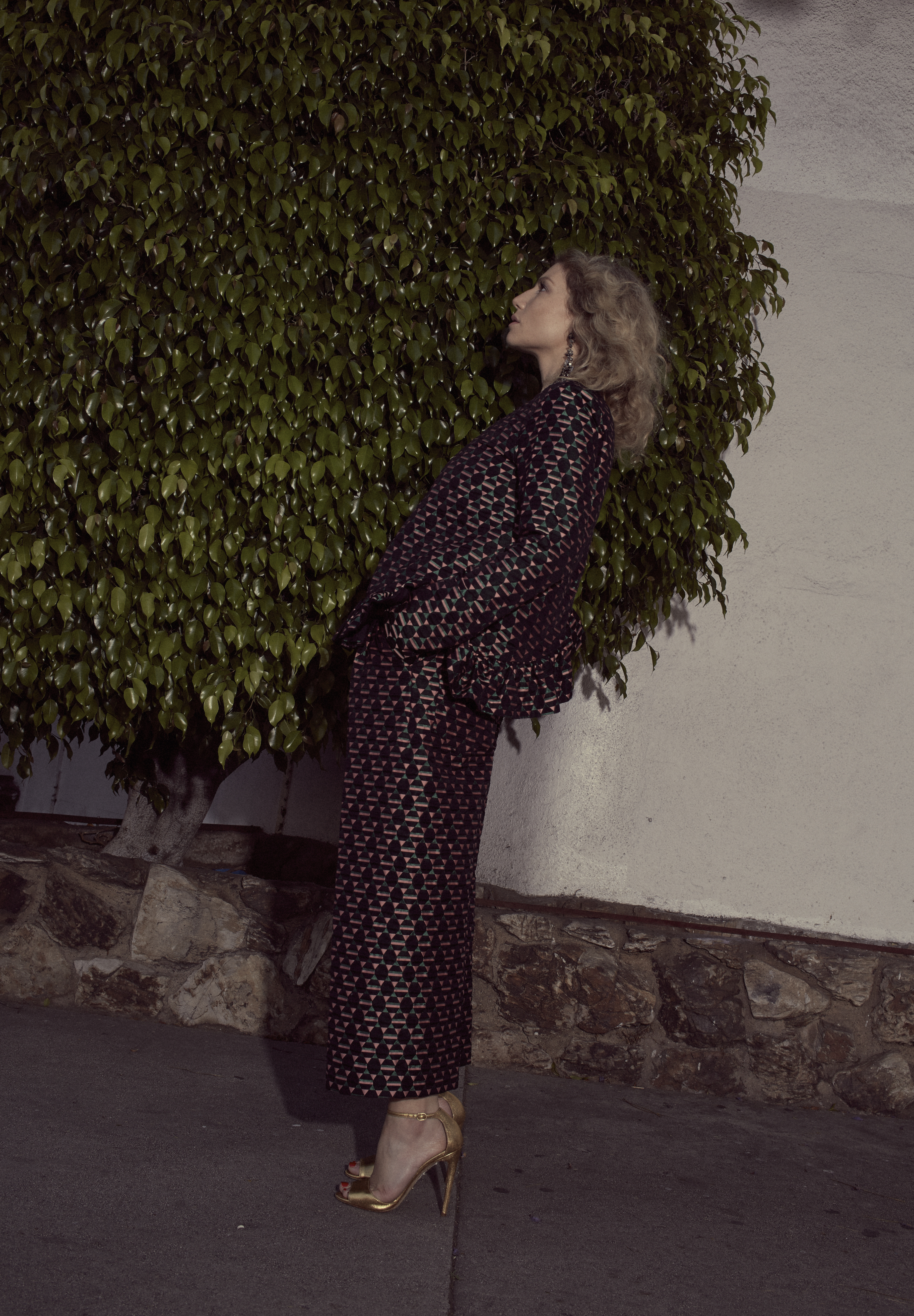
So riffing on Showtime’s title DYING and stealing from the venerable Marcel Proust-
If you were to die and come back as a person or thing, what do you think it would be? If you could choose what to come back as what would that be?
I would probably die and come back a golden retriever and, if I could choose, I’d die and come back as a golden retriever owned by my dad.
Top and pants: Marni available at Mona Moore | Earrings: Shop Curve | Heels: Jerome Rousseau | Black top: Maison Martin Margiela at Mona Moore
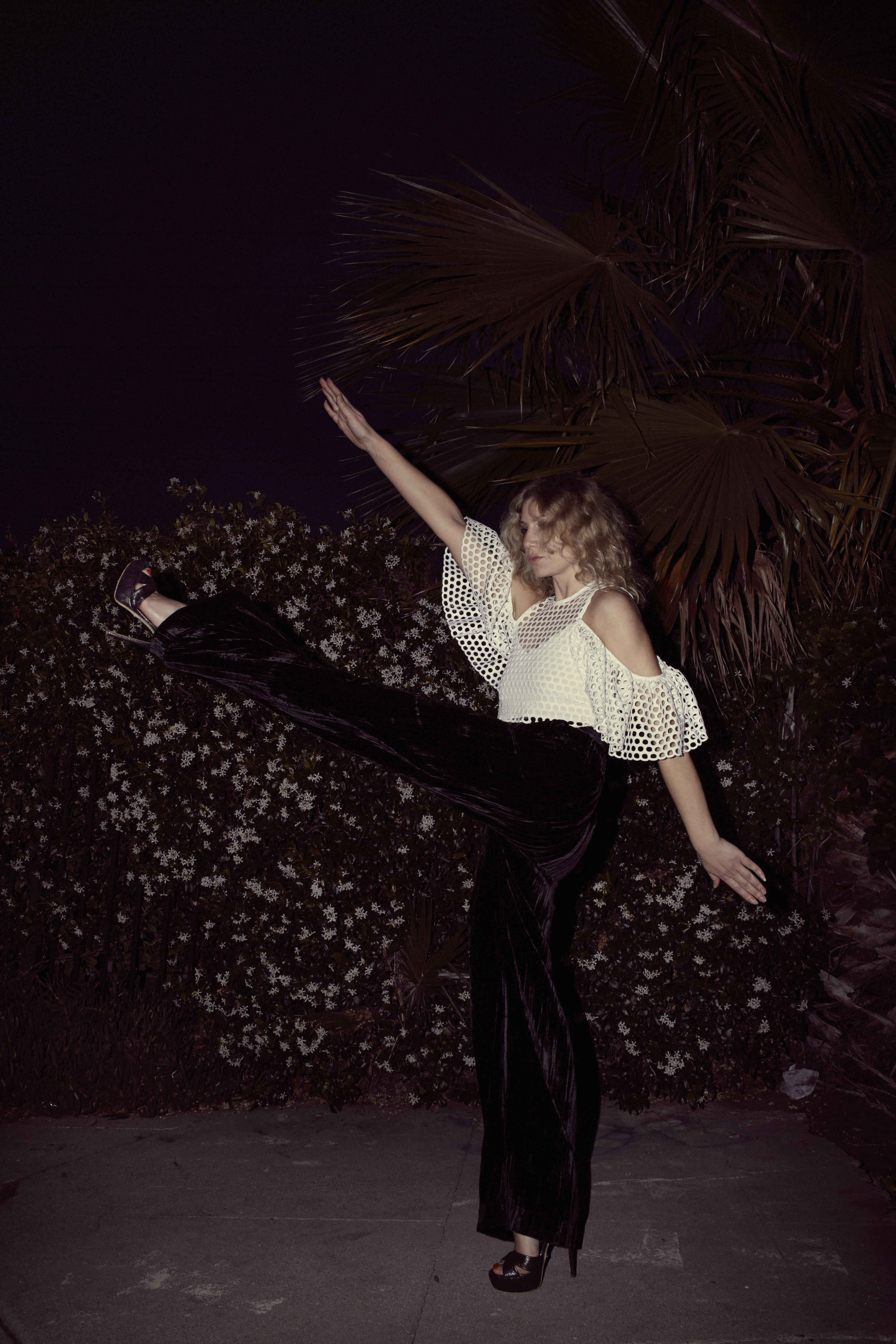
It’s a pretty difficult life, the circuit of a comic, especially for a newbie; Traveling from small town to small town; Staying in fleabag motels. Often for months at a time. Have you spoken to professionals about the work? Do you think comedians thrive on that? Does it inform their work? Or is it just pure due paying and crap due-paying at that?
This first season of the show was focused pretty much in LA. Cassie and a lot of the other comics aren’t quite ready for the circuit yet but if we come back for a second season (fingers crossed) I think there may be more on the road. I did talk to a lot of comics about it and it’s definitely a huge part of their lives. I feel weird and ill-equipped speaking on behalf of their experience, so it’s just my own impression, but I don’t know if they thrive on it necessarily. It does become quite a large part of their story and life, though, so it can’t help but become a part of you and inform something – your experiences, your point of view, the things you see and how that makes its way into your act, and just the inherent loneliness that comes with being a comic. I think the most common thing you hear is about how lonely it is.
Comedy is a field where women are under-represented, and in 1970 practically not represented. Cassie has a tricky relationship the club’s owner, “Goldie” played stunningly by Melissa Leo. One would think it would be a benefit, a mentor/mentee type of alliance. That is not necessarily the case. How would you describe Cassie’s relationship with Goldie?
Their relationship is so unique and really defies convention or an easy label. It holds everything -respect, resentment, love, anger. They are sometimes adversaries on the same team.
There is often difficult dynamics between women. Often occurring between a female boss and her female employee. It doesn’t quite make sense. In the case of this show, from where does the conflict arise?
There’s a long standing historical and, some might even argue, biological foundation for complicated female relationships through time. So I think the employer/employee dynamic is part of something much larger and older than just what’s going on in the club. It’s almost archetypal. But, in simple terms, Goldie doesn’t want to hand something over to Cassie until she feels that she’s ready and Cassie, of course, thinks she’s ready and often feels like she’s being treated unfairly and differently than the guys.
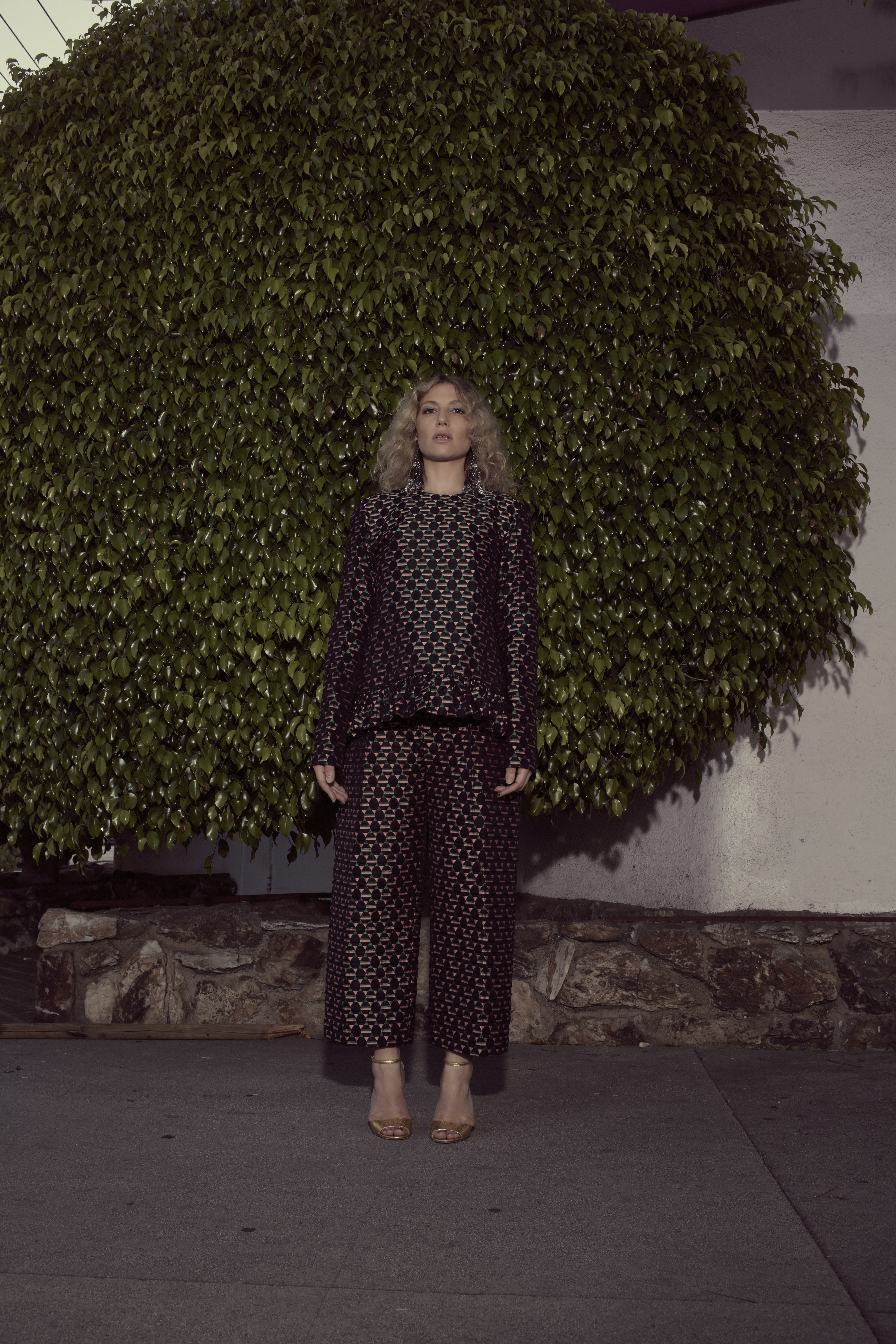
You recently played at the Lucille Lortel Theater in Manhattan in a play called YEN (not ZEN). What was the play about and whom did you portray?
It was a very intense British play essentially about what happens when we don’t get the love we need. I played a diabetic, alcoholic, absent mother to two teenage boys, played by the brilliant unicorns Lucas Hedges and Justice Smith. The fact that these young(ish) men played my sons will never stop being hilarious to me. To be fair, it was a “baby having babies” situation. But this was right after shooting “I’m Dying Up Here” so it was a real gear shift, to say the least.
Do you have any new on stage productions afoot? Have you ever written for stage or screen? I imagine you would be quite skillful in the craft.
I don’t know what my next play will be but I hope to do one again sooner rather than later. Theater really is a kind of mediation for life and a home base for me.
As far as writing, I’ve actually spent the majority of my time over the last three years writing. I’m so close to completing my second screenplay – like today, hopefully. It’s been really exciting to find a whole new mode of expression and get to use a different part of my brain and implement what I’ve learned along the way about storytelling. One of the films I would direct, but not act in, and one I would act in, but not direct.
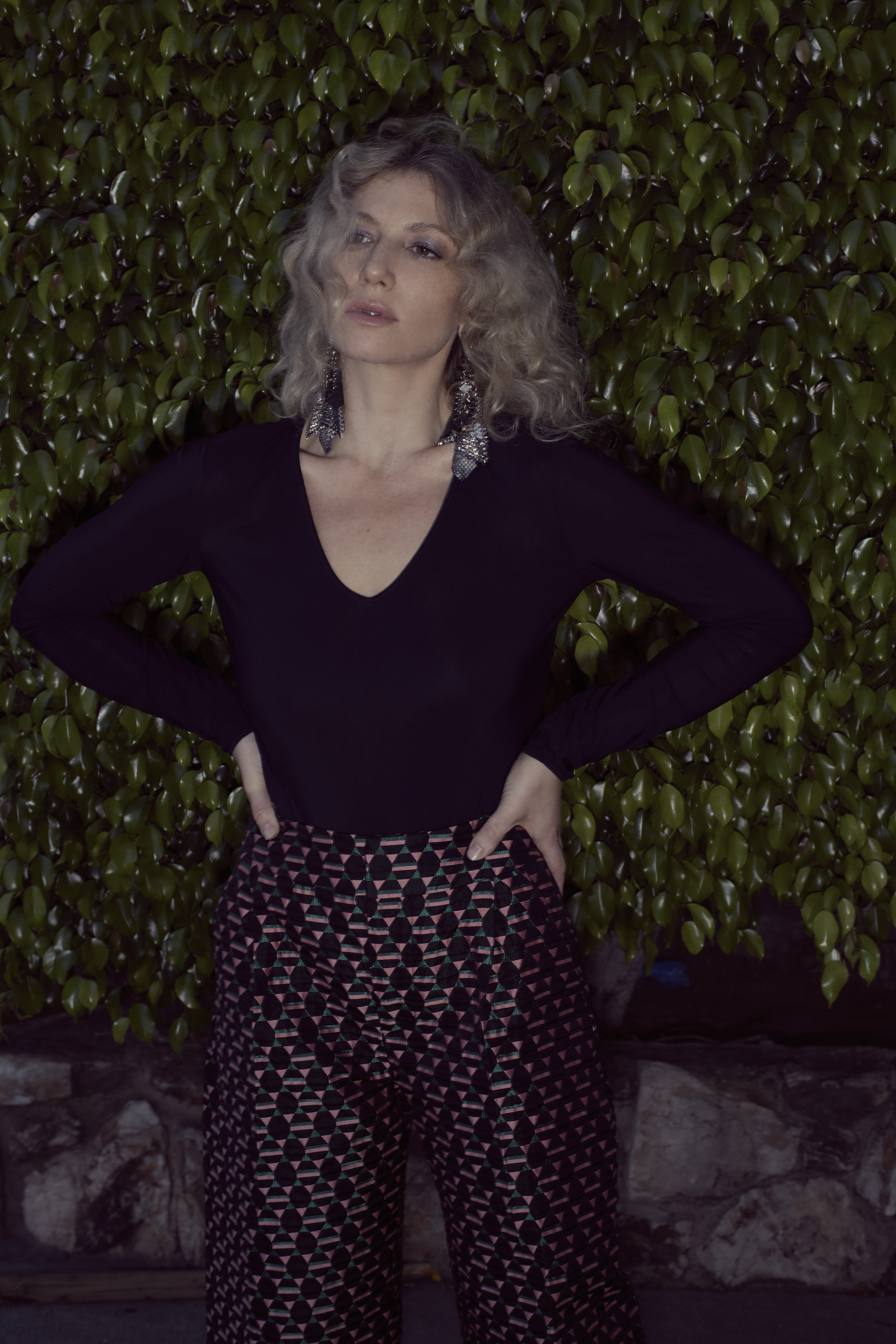
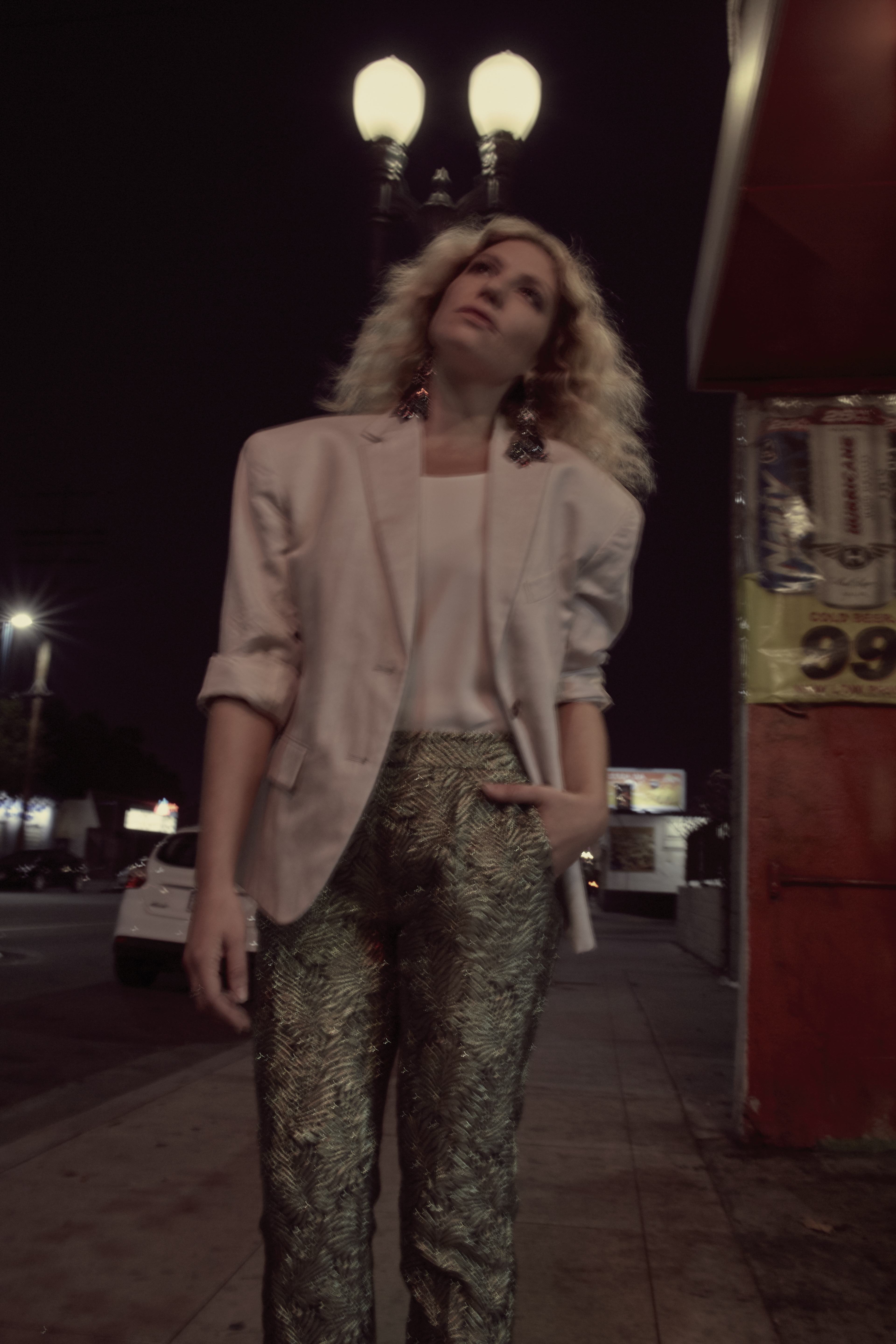
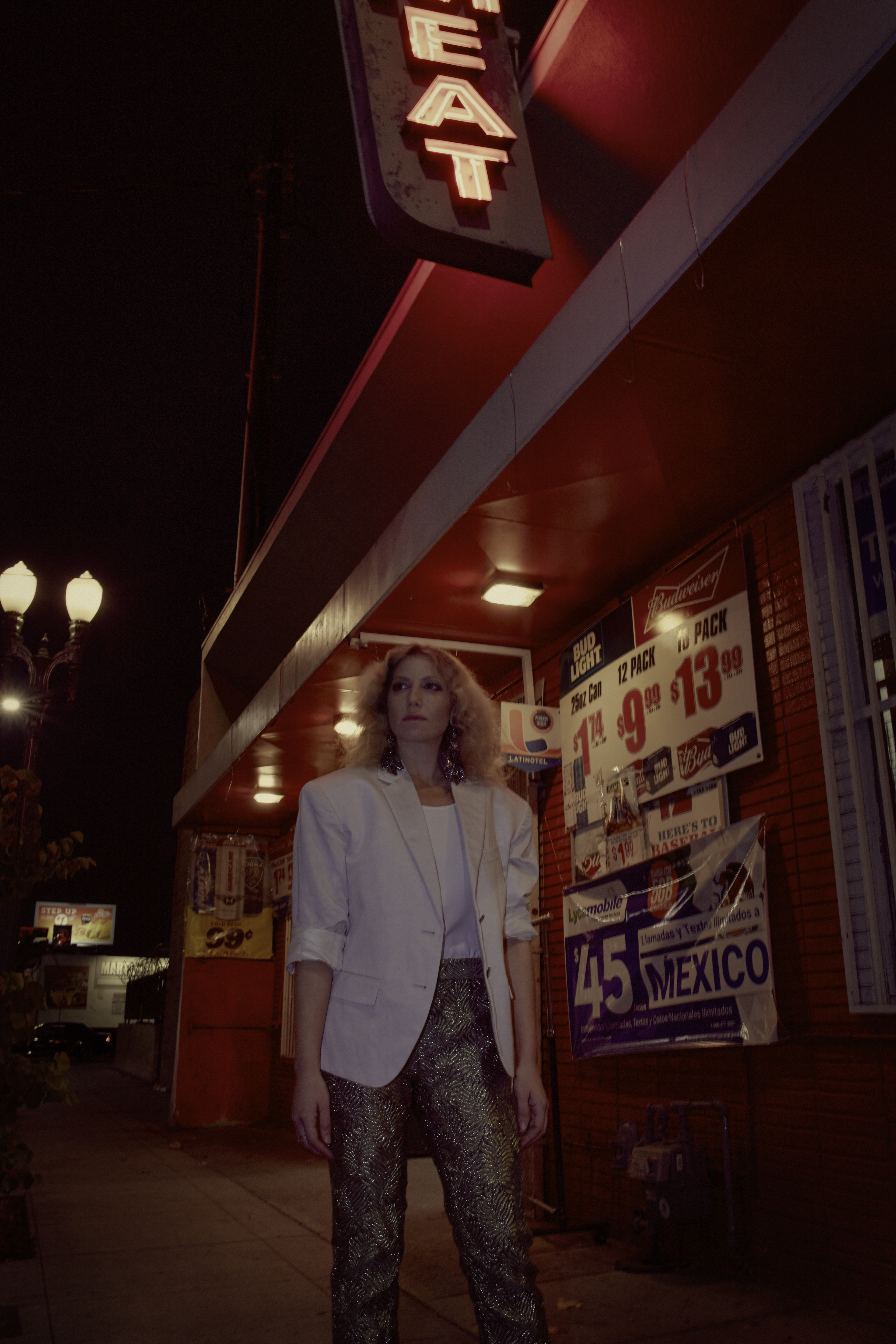
Jacket, Top, and Heels: Jil Sander | Pants and Earrings: Available at Shop Curve
is the last embarrassing thing you did that made you “want to die”?
Usually it involves me saying something really earnest that I then regret 5 mins later. Like my answers in this interview.
Last question. Before you die (a long, long way off) name a couple of your must do’s in life?
Write and direct a movie. Live abroad. Become fluent in Italian. Learn how to not give a f**k.
Thank you for allowing me to grill you about stand-up. I just find that realm of art fascinating.


Credits:
Photography: Eric Hobbs
Makeup: Melissa Murdick @ Opus Beauty
Hair: Nikki Providence @ Forward Artists
Layout Art: Richard Ho
Thank you:
Retrouve:  Store
Store
Shop Curve: Store
Mona Moore:  Store
Store

